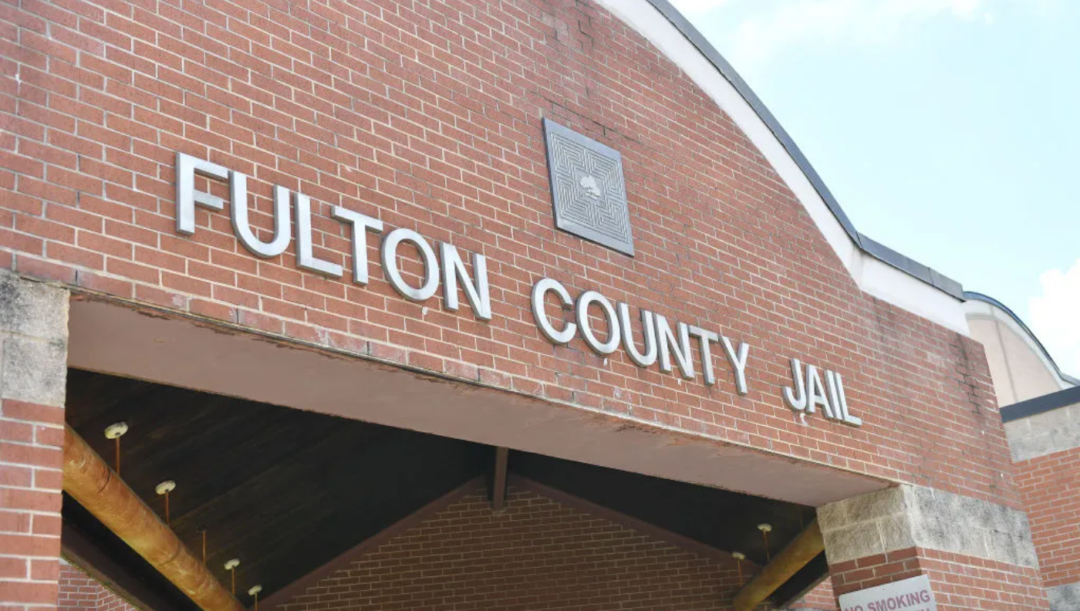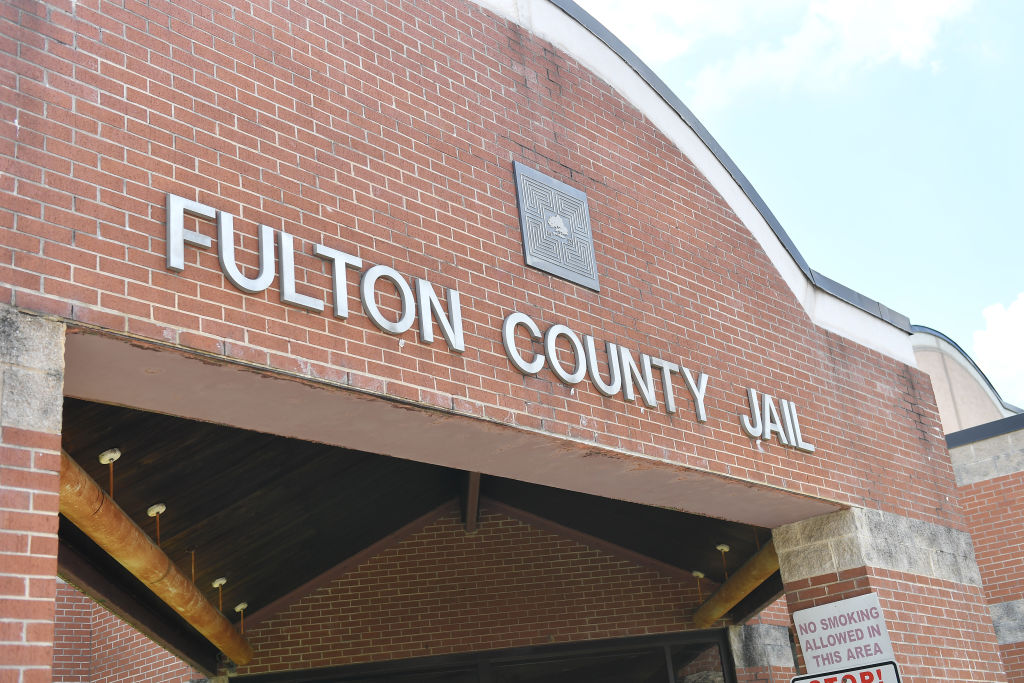Source: Paras Griffin / Getty
At this moment, hundreds of residents in one of the largest Black counties in Georgia are malnourished and sleeping on the floor of the severely overcrowded Fulton County jails– waiting to learn their fates for often minor offenses. There are many players to blame for this current jail debacle – the Governor, the Sheriff, Court Administrators and Judges. But little has been said about the most powerful players in our legal system – the local prosecutors in Fulton County.
Prosecutors are the most consequential actor in our criminal legal system. They decide charges, make bail recommendations, plea offers and sentencing recommendations. They can hold police accountable for the killings of Black people. They can decide whether or not to prosecute abortions. In the current debate over Fulton County’s jail system, they are a driver of overcrowding.
Felony prosecutor District Attorney Fani Willis has chased high-profile cases yet appears unwilling or unable to indict felony cases in a timely manner so that at least some of those held pretrial can know their fate and leave detention. This is despite the $5 million in additional funding her office received over a year ago to clear the backlog of cases. Because of her office’s inefficiencies and indifference, around half of the jail population has not been formally charged with a crime. Meanwhile, Fulton County’s misdemeanor prosecutor, Solicitor General Keith Gammage, took some steps to alleviate the crisis, creating a State Expedited Accusations Calendar to more quickly process cases. But Gammage could further instruct his prosecutors to decline to prosecute certain offenses in certain instances, a process followed by many prosecutors across the country that has lowered jail populations.
The County’s troubling trends have been documented by the ACLU and Georgetown University, who also noted that “Fulton County puts its residents behind bars at a rate nearly three times that of other urban counties.”
Yet bizarrely, Mayor Andre Dickens broke with former Mayor Keisha Lance Bottoms’ vision to transform the largely unused Atlanta City Detention Center into a diversion space and has instead supported a lease of 700 jail beds to Fulton County. While Mayor Bottoms asked Fulton County to demonstrate what actions they would take to address the root causes of the overcrowding crisis, this Administration has opted to embrace dysfunction. In the process, city leaders have manufactured an entirely avoidable crisis that underscores the desperate need for criminal legal reforms. We cannot and will not accept this catastrophe and call on prosecutors to use their power to reduce the jail population in Fulton County.
Fulton County puts its residents behind bars at a rate nearly three times that of other urban counties. We know that pretrial detention as short as one to three days costs Black people their jobs, housing and custody of their children — and exposes them to injury, illness, trauma and even death. This mass and unnecessary incarceration is creating a health catastrophe. Even a one-night jail stay can be a death sentence for people with underlying health conditions and for vulnerable family members they go home to. Detention facilities have seeded millions of COVID-19 cases, mainly in Black and Latinx communities.
Recently, the Southern Center for Human Rights (SCHR) released a report of the Sheriff’s records describing neglect in the jail’s mental health unit that resulted in 90% of people detained exhibiting severe malnutrition and 100% determined to have either lice or scabies or both. It is dangerously myopic to believe that leasing 700 beds would solve such an institutional disaster.
The solutions are obvious – Solicitor Gammage is to be applauded for his use of restorative justice and support for expungement. But now is the time to use far more discretion when prosecuting minor offenses that pose no threat to public safety, such as minor traffic offenses and trespassing. They should be transparent with the community about their approach. Prosecutors across the country have stopped prosecuting certain minor offenses, and studies have shown that there has been no significant negative impact on public safety.
District Attorney Willis needs to prioritize resolving the felony cases of those who are being held pretrial, as opposed to those who are currently released and make use of the $5 million she was given over a year ago by diverting, dismissing and as a last resort formally charging those who are held. Willis is legally required to indict or accuse every person within 90 days of them being booked into the jail. Finally, in instances where prosecutors are inclined to recommend a money bail amount, they should instead recommend release, given that the only thing stopping the person from gaining their freedom is their finances.
People want to see their public safety dollars spent where they will make a difference and reduce violence and harm — by providing housing stability, offering mental health support, making education improvements, and expanding community resources. None of us benefit from mass incarceration and overcrowded local jails. The answer to the overcrowding problem is not to lease additional beds but to trust and utilize alternative approaches to law enforcement that focus on strong, safe and successful communities. Elected prosecutors must recognize their role in the overcrowding crisis, partner with the community, and take immediate steps to tackle this problem.
Sakira Cook is vice president at Color Of Change.
This piece was originally published at https://newsone.com/4466271/op-ed-fulton-county-prosecutors-share-blame-for-jail-overcrowding/


